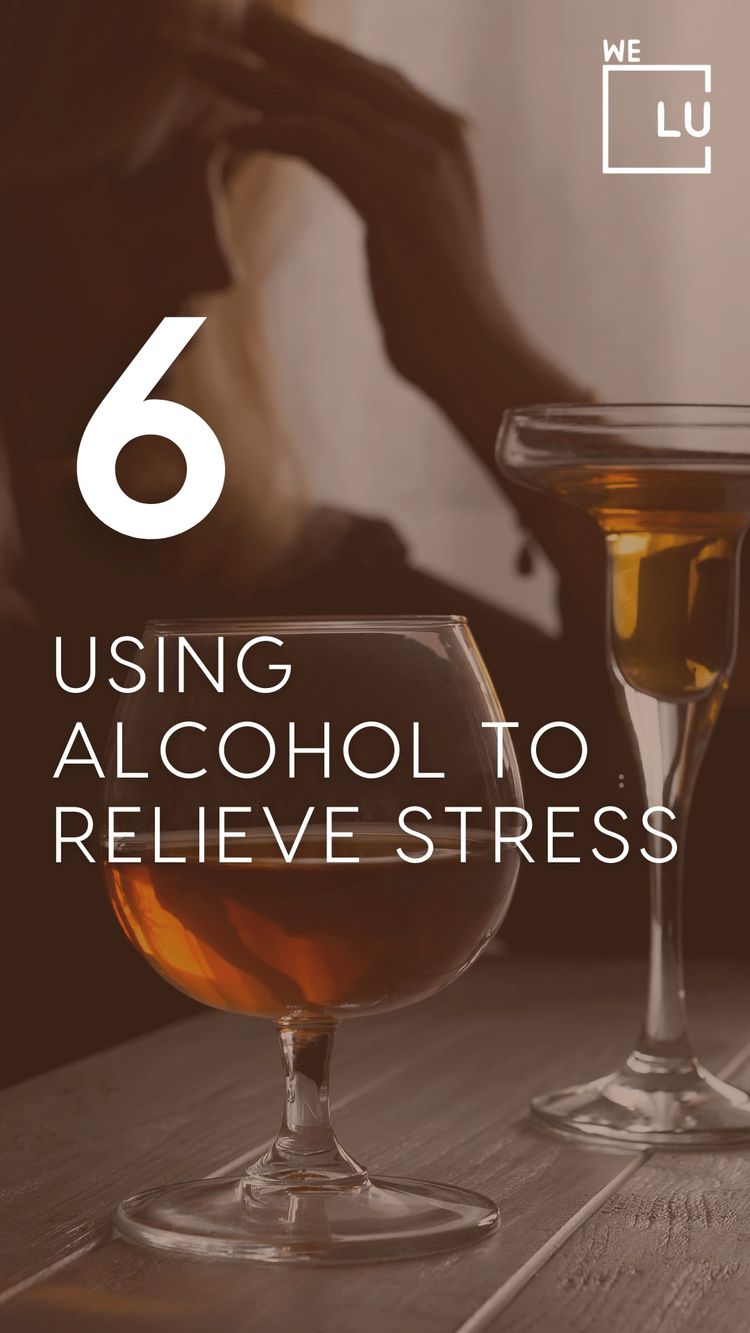What is a High Functioning Alcoholic?
A high-functioning alcoholic is an informal term that refers to someone who appears to maintain a successful professional and personal life while drinking excessive alcohol. Drinking is often covert, and the person may deny they have any issue with their drinking.
People should note that the term “high functioning alcoholic” is no longer used within the medical community. This is due to the potentially stigmatizing language around the word “alcoholic”, which may prevent someone from seeking help and support.
A high-functioning alcoholic informally describes a person who, on the surface, appears to be able to maintain a typical functioning life while drinking excessive amounts of alcohol.
This means someone who seems to be able to continue to perform and even succeed in their career or family life, maintaining relationships, physical health, and avoiding involvement with criminality, despite excessive alcohol use.
Skip To:
Learn More:
- Alcoholism Treatment, Signs, Complications & Rehab Programs
- Alcoholic Hepatitis Treatments
- Alcoholic Cirrhosis
- Mixing Prescription Drugs with Alcohol
- Wet Brain Treatment
- Dry Drunk Syndrome
- Symptoms of Alcohol Use Disorder
- Alcoholism Treatment Near Me
- Alcohol Withdrawal Treatment
- Inpatient Alcohol Rehab Center
Am I a High Functioning Alcoholic?
The signs of alcohol addiction are not always visible. This is especially the case for someone who may be referred to as a “high functioning alcoholic.” Denial is a component of many people’s drinking problems and may be even more pronounced among high-functioning alcoholics. Yet, denial can be a tremendous barrier to people suffering from alcoholism because they may not want to, or be able to, admit that they have a problem.
People who are in denial may lie about their alcohol use, underestimate the amount they use, and fail to admit to the duration of their problem or acknowledge the full impact that their alcohol abuse has had on their lives. When confronted with an unavoidable reality, such as a DUI or a diagnosis of liver disease, some people’s denial can be broken. Still, for others, it remains a permanent fixture despite their realities. Regardless, admitting to a problem and embracing one’s need for help can be crucial for successful recovery, and are key reasons why the first step in Alcoholics Anonymous is admitting to being powerless over alcohol.
9 Signs of High Functioning Alcoholic
One common mistake people may make when researching high-functioning alcoholism is looking up “symptoms of alcohol abuse disorder” or a similar term. Symptoms of this condition and a more severe disorder are entirely different, so your source must strictly focusing on the signs of a high-functioning problem.
Here are 9 signs that someone may be a high functioning alcoholic:
- Drinking a lot at once and not being able to stop
- Inability to cut down
- Drinking alone and/or during the day frequently
- Using despite possibly dangerous consequences
- Acting similar when under the influencer
- Using alcohol to relieve stress
- Drinking instead of eating
- Having a higher tolerance
- Experiencing withdrawal symptoms after not drinking
In addition to these alcohol-related signs, they might be showing common symptoms of alcohol abuse disorders: loss of focus or memory, shakiness, paranoia, changes in mood, insomnia, or missing deadlines.
Get Help. Get Better. Get Your Life Back.
Searching for Accredited Drug and Alcohol Rehab Centers Near You?
Even if you have failed previously and relapsed, or are in the middle of a difficult crisis, we stand ready to support you. Our trusted behavioral health specialists will not give up on you. When you feel ready or just want someone to speak to about therapy alternatives to change your life call us. Even if we cannot assist you, we will lead you to wherever you can get support. There is no obligation. Call our hotline today.
(844) 597-1011What Percentage of Alcoholics are Functioning or High Functioning Alcoholics?
The term “high-functioning alcoholic” is one that most people seem to understand or identify with, but ironically it has yet to be formally defined or examined. A landmark study in 2007 by the National Institute on Alcohol Abuse and Alcoholism categorized alcoholics into 5 subtypes: 20 percent are the “functional” subtype, 32 percent are the “young adult” subtype, 21 percent are the “young antisocial” subtype, 19 percent are intermediate familial subtype (middle-aged with mental illness), and only 9 percent are of the “chronic severe” subtype, fitting the stereotype of the low-bottom alcoholic. Other addiction experts estimate that between 75 percent and 90 percent of alcoholics are high-functioning.
How to Help a High Functioning Alcoholic?
Living with a high-functioning alcoholic may cause you to feel depressed or anxious as a result of his or her problem drinking. Constantly lying and covering up for your husband or wife can be wearing on your relationship and may even cause you to neglect your own needs. While you may be angry or upset with your loved one, avoid confrontation. It may decrease his or her receptiveness to get help and cause your loved one to become defensive. Instead, try approaching your loved one with compassion.
Below are some things to keep in mind when talking to a high-functioning alcoholic:

- Use a nonjudgmental tone that communicates empathy and genuine concern without blaming your loved one for his or her alcoholism.
- Tackle the problem together and show your support by offering to attend therapy with the person.
- Try to catch the person when he or she is trying to quit drinking because this suggests that he or she has acknowledged the problem and may be willing to make a change.
- Stop making excuses for the person. This will help your loved one to see the consequences of his or her drinking.
- Avoid talking down to him or her. The person probably already feels shame or guilt from drinking.
- Do not approach a high-functioning alcoholic while he or she is drunk. Chances are, the person will not be coherent and may not remember the conversation.
- Avoid raising your voice or acting angry or aggressive when talking to your loved one.
Remember always to empower and encourage your loved ones. Instilling belief will improve confidence and motivation to get help.
Identifying the Warning Signs
What is heavy drinking? For women, having more than three drinks a day or seven a week. For men, it’s four or more per day or 14 a week. You’re at risk if you drink more than the daily or weekly limit.
That’s not the only way to tell if you or someone you care about needs help. There are some other red flags. You might:
- Say you have a problem or joke about alcoholism
- Not keep up with major responsibilities at home, work, or school
- Lose friendships or have relationship problems due to drinking, but you don’t quit alcohol
- Have legal problems related to drinking, such as a DUI arrest
- Need alcohol to relax or feel confident
- Drink in the morning or when you’re alone
- Get drunk when you don’t intend to
- Forget what you did while drinking
- Deny drinking, hide alcohol, or get angry when confronted about drinking
- Cause loved ones to worry about or make excuses for your drinking

Get Your Life Back
Find Hope & Recovery. Get Safe Comfortable Detox, Addiction Rehab & Dual Diagnosis High-Quality Care.
Hotline(844) 597-1011Avoiding the Trap of Codependency
Codependency is a dysfunctional relationship where an individual’s self-esteem and emotional needs depend on the other person. The codependent person may also enable the other person’s toxic habits without meaning.
Healthy relationships strive to have an equal balance of “give and take” when it comes to fulfilling needs, rather than prioritizing the needs of one partner. In a codependent relationship, there’s an imbalance of power that favors the taker’s needs, leaving the giver to keep giving.
When assessing your relationship with codependency, it may help to ask yourself some questions. Sometimes we become so used to our habits, especially the not-so-healthy ones, that we forget a different way of living. These questions are meant for you to ask after taking a step back and being honest about your situation.
The following questions can help you assess whether or not you are in a codependent relationship:
- Does your sense of purpose revolve around making extreme sacrifices to satisfy your partner’s needs?
- Is it difficult to say no when your partner demands your time and energy?
- Do you cover your partner’s problems with drugs, alcohol, or the law?
- Are you constantly worrying about others’ opinions of you?
- Do you feel trapped in your relationship?
- Do you keep quiet to avoid problems with your partner?

Signs of Codependency
The following is a list of symptoms you can use to recognize whether or not codependency is a present issue in your life. You don’t need to have them all to be diagnosed as codependent.
These symptoms include but are not limited to:
- Seeking external validation from your partner to build self-esteem.
- Having weak boundaries.
- Constantly putting your needs down to fulfill theirs.
- Feeling responsible for your partner’s actions and behaviors.
- Constantly worrying about your partner’s issues.
- Your partner’s mood impacts your day.
- A constant need to know what your partner is doing or thinking.
- An issue with addressing your feelings and thoughts, or you diminish/deny how you feel.
Codependency and alcoholism often correlate. Did you know that the term was created to refer to the spouses of those with alcoholism? A relationship in which the person becomes codependent on an individual struggling with alcohol use is a reality many people face.
Codependency is a learned behavior. For example, a child may grow up witnessing an unhealthy relationship with their parents and then unintentionally develop those same characteristics. Codependent behaviors could also be learned by other means, such as:
- Dysfunctional parents
- Mental health disorders
- Chronic physical illness
- Childhood abuse
First-class Facilities & Amenities
World-class High-Quality Addiction & Mental Health Rehabilitation Treatment
Rehab Centers TourRenowned Addiction Centers. Serene Private Facilities. Inpatient rehab programs vary.
Addiction Helpline(844) 597-1011Proven recovery success experience, backed by a Team w/ History of:
15+
Years of Unified Experience
100s
5-Star Reviews Across Our Centers
10K
Recovery Success Stories Across Our Network
- Low Patient to Therapist Ratio
- Onsite Medical Detox Center
- Comprehensive Dual-Diagnosis Treatment
- Complimentary Family & Alumni Programs
- Coaching, Recovery & Personal Development Events
Seeking Support From Others
If someone close to you is a high-functioning alcoholic, it’s just as important to seek support for yourself as it is to get help for your loved one. You likely have questions about how to deal with an alcoholic or how to help an alcoholic. Self-help organizations, church groups, and 12-step programs like Al-Anon and Alateen offer advice, hope, and encouragement to people involved with functioning alcoholics [1].
Alcoholism affects everyone in a household — not just the individual who drinks. Alcohol abuse increases the risk of physical and emotional violence and substance abuse in other family members. An addiction therapist can help you find positive ways to deal with the stress of living with a functional alcoholic.
Holding an Intervention
If the consequences of high-functioning alcoholism have become overwhelming, and your loved one refuses to seek help for alcohol abuse, it could be time to plan an intervention. An intervention is a planned meeting in which the concerned parties confront the alcoholic about their behavior.
The goals of intervention include:
- Getting the alcoholic to see how drinking has harmed them and their loved ones
- Presenting the alcoholic with a plan for recovery
- Proposing consequences if the alcoholic refuses to seek treatment
- Helping the alcoholic take the right steps to enter treatment
The participants in the intervention could include the alcoholic’s spouse or partner, children, parents, friends, coworkers, employer, friends, and other individuals who have been affected. A substance abuse counselor, family therapist, or spiritual advisor may also attend to provide an objective presence and keep the agenda on track.
Although an intervention can take many forms, many meetings open with each participant stating how the alcoholic’s behavior has harmed or disappointed them, the alcoholic is then presented with a plan of care, including a proposal of consequences if they decide to refuse. For instance, the alcoholic may be denied visitation rights or be faced with a marital separation if he decides not to seek help.
An alcoholic in denial may become extremely manipulative, tearful, angry, or hostile when faced with the need for alcohol treatment [2]. An experienced intervention specialist can help the participants prepare for these reactions to respond effectively.
World-class, Accredited, 5-Star Reviewed, Effective Addiction & Mental Health Programs. Complete Behavioral Health Inpatient Rehab, Detox plus Co-occuring Disorders Therapy.
CALL(844) 597-1011End the Addiction Pain. End the Emotional Rollercoaster. Get Your Life Back. Start Drug, Alcohol & Dual Diagnosis Mental Health Treatment Now. Get Free No-obligation Guidance by Substance Abuse Specialists Who Understand Addiction & Mental Health Recovery & Know How to Help.
Dual Diagnosis Treatment for High Functioning Alcoholic
Treatment programs for alcohol use disorders should include a treatment plan that is specific to the individual. Typically, an addiction treatment specialist and, sometimes, a treatment team will work with the person to design and carry out the treatment plan.
In addition, prolonged alcohol use can have severe physical and psychological effects on you, so it is essential to seek treatment as soon as possible. Inpatient alcohol rehab offers intensive care that can help you promptly get through the early stages of withdrawal.
Medically-Assisted Detox
Detox is often considered the first stage of treatment. It will help you navigate the complicated process of alcohol withdrawal but doesn’t address patterns of thought and behavior that contribute to alcohol use. Various treatment approaches and settings can help provide the ongoing support necessary to maintain long-term sobriety after you complete detox.
Cravings are very common during detox and can be challenging to overcome. This often leads to relapse. Constant medical care provided during inpatient treatment helps prevent relapse. Clinicians can provide necessary medication and medical expertise to lessen cravings and the effects of withdrawals.
Psychotherapy
Several different modalities of psychotherapy have been used in the treatment of mental health disorders along with addiction, including:
- Cognitive Behavioral Therapy (CBT) – is an effective treatment that involves making changes in both the patterns of negative thoughts and the behavioral routines which are affecting the daily life of the depressed person for various forms of depression.
- Dialectical Behavioral Therapy – is a comprehensive mental health and substance abuse treatment program whose ultimate goal is to aid patients in their efforts to build a life worth living. The main goal of DBT is to help a person develop what is referred to as a “clear mind.”
- Person-Centered Therapy – is a strategy that allows and encourages clients to understand and resolve their concerns in a safe, supportive environment.
- Solution–focused therapy is an approach interested in solutions that can be quickly implemented with a simple first step leading to further positive consequences.
Dual Diagnosis Treatment
Alcohol abuse and mental health disorders often co-occur. In many cases, traumatic experiences can result in a mental health disorder and substance abuse. Dual diagnosis rehabilitation treats both of these issues together. The best approach for the treatment of dual diagnosis is an integrated system. This strategy treats both the substance abuse problem and the mental disorder simultaneously. Regardless of which diagnosis (mental health or substance abuse problem) came first, long-term recovery will depend largely on the treatment for both disorders done by the same team or provider.
Medication-Assisted Treatments
Medication-Assisted Treatments (MAT) for substance use and mental health disorders are commonly used in conjunction with one another. This includes the use of medications and other medical procedures. During your rehab, the staff from your treatment facility will help you identify what caused your addiction and teach you skills that will help you change your behavior patterns and challenge the negative thoughts that led to your addiction. Sometimes, the pressures and problems in your life lead you to rely on substances to help you forget about them momentarily.
Please, do not try to detox from alcohol on your own. The detox process can be painful and difficult without medical assistance. However, getting through the detox process is crucial for continued treatment. We Level Up provide proper care with round-the-clock medical staff to assist your recovery through our Alcohol Detox Treatment Program medically. So, reclaim your life, and call us to speak with one of our treatment specialists. “How to help a high functioning alcoholic?” is a question most parents ask. Our counselors know what you are going through and will answer any of your questions.

Experience Transformative Recovery at We Level Up Treatment Centers.
See our authentic success stories. Get inspired. Get the help you deserve.
Start a New Life
Begin with a free call to an addiction & behavioral health treatment advisor. Learn more about our dual-diagnosis programs. The We Level Up Treatment Center Network delivers recovery programs that vary by each treatment facility. Call to learn more.
- Personalized Care
- Caring Accountable Staff
- World-class Amenities
- Licensed & Accredited
- Renowned w/ 100s 5-Star Reviews
We’ll Call You
Sources:
[1] AA – https://www.aa.org/frequently-asked-questions-about-aa-formerly-44-questions
[2] NIAAA – https://www.niaaa.nih.gov/publications/brochures-and-fact-sheets/understanding-alcohol-use-disorder
[3] NIAAA – https://www.niaaa.nih.gov/publications/brochures-and-fact-sheets/alcohol-facts-and-statistics
[4] NCBI – https://www.ncbi.nlm.nih.gov/pmc/articles/PMC3860472/












